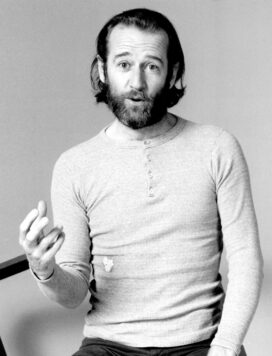Facts about George Carlin
George Carlin Biography
George Carlin was the cranky and durable stand-up comedian most famous for his 1970s routine known as “The Seven Words You Can Never Say on Television.” After being discharged from the U.S. Air Force in the 1950s, George Carlin began his comedy career on the radio and in nightclubs in Los Angeles in the early 1960s. Throughout the 1960s he did standup while appearing on television sit-coms and talk shows, doing hip-but-clean routines like his famous “hippy-dippy weatherman.” But in the 1970s he came into his own as a Grammy-winning comic and social commentator, known for mixing off-color wordplay, goofy absurdity and angry political riffs on albums such as FM & AM and Class Clown (both 1972). That was the era of “Seven Words You Can Never Say on Television,” a monologue in which Carlin spoke aloud (and repeatedly) a list of four-letter words deemed too obscene for broadcast. Over the years, Carlin had his own TV specials, wrote books and guest-starred in feature films, most notably as Rufus in 1989’s Bill & Ted’s Excellent Adventure (starring Keanu Reeves). As cable TV blossomed in the 1990s, Carlin found that not only could he now say his famous seven words on television, but that he had become a mainstream comedy icon. His records include A Place for My Stuff (1981) and Parental Advisory: Explicit Lyrics (1990); his books include Brain Droppings (1997) and Napalm and Silly Putty (2001); and his movies include Outrageous Fortune (1987, with Bette Midler) and several Kevin Smith comedies, including Dogma (1999) and Jersey Girl (2004, with Ben Affleck).
Extra credit
George Carlin hosted the first episode of NBC’s Saturday Night Live in October of 1975… He was “Mr. Conductor” in the ’90s on the children’s TV shows Thomas the Tank Engine and Friends and Shining Time Station… George Carlin entered the U.S. Air Force in 1954. His official site says he received “three court-martial and numerous Article Fifteens (form of punishment just below court-martial)” during the next three years and was given a “general discharge under honorable conditions” — one notch below an honorable discharge — in 1957.

